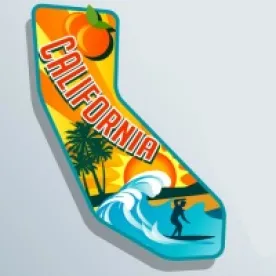The Federal Arbitration Act (“FAA”) preempts California’s Broughton-Cruz rule, which states arbitration agreements for injunctive relief claims under the state unfair competition and false advertising laws are against public policy and invalid, the California Court of Appeal has held in an insurance consumer class action, allowing arbitration to proceed. McGill v. Citibank, N.A., No. G049838 (Cal. Ct. App. Dec. 18, 2014).
This decision calls into question the continued viability of California’s Broughton-Cruz rule, which was established by the California Supreme Court in Broughton v. Cigna Healthplans, 21 Cal. 4th 1066 (Cal. 1999), and Cruz v. PacifiCare Health Systems, Inc., 30 Cal. 4th 303 (Cal. 2003).
Applying a narrow exclusion for representative claims under the state Labor Code Private Attorneys General Act of 2004 (“PAGA”), the Court of Appeal also ruled the plaintiff’s claims cannot be saved from arbitration by the California Supreme Court’s decision in Iskanian v. CLS Transportation Los Angeles, LLC, 59 Cal. 4th 348 (Cal. 2014), which held waivers of representative actions in arbitration agreements invalid. The Court ruled an arbitration agreement covering the plaintiff’s claims under the state unfair competition and false advertising laws are enforceable.
Background
Sharon McGill sued Citibank, N.A. for violations of the California unfair competition law (“UCL”), false advertising law (“FAL”), and Consumer Legal Remedies Act (“CLRA”) in connection with a credit insurance plan protecting her credit card account. McGill sought monetary damages, restitution, and injunctive relief. The company petitioned the trial court to compel arbitration of her claims based on a broad arbitration provision in her account agreement. The trial court granted the petition with respect to McGill’s claims for damages and restitution, but denied the petition on injunctive relief claims under the Broughton-Cruz rule. The company appealed.
Applicable Law
The U.S. Supreme Court has held that arbitration agreements are enforced according to their terms, in the same manner as other contracts. AT&T Mobility LLC v. Concepcion, 131 S. Ct. 1740 (2011). On whether the Federal Arbitration Act prohibited California’s rule conditioning the enforceability of certain consumer arbitration agreements on the availability of class-wide arbitration procedures set forth in Discover Bank v. Superior Court, 36 Cal. 4th 148 (2005), the U.S. Supreme Court found that, although the FAA’s savings clause preserved generally applicable contract defenses, “nothing in it suggests an intent to preserve state-law rules that stand as an obstacle to the accomplishment of the FAA’s objectives.” On this basis, it overruled Discover Bank as preempted because the rule interfered with the FAA’s overarching purpose: “to ensure the enforcement of arbitration agreements according to their terms so as to facilitate streamlined proceedings.”
In another case, Iskanian v. CLS Transportation Los Angeles, LLC, 59 Cal. 4th 348 (Cal. 2014), the California Supreme Court upheld the validity of class action waivers in employment arbitration agreements, overruling its earlier decision (Gentry v. Superior Court, 42 Cal. 4th 443 (2007)) as preempted by the FAA and the U.S. Supreme Court’s decision in Concepcion. However, the California court also ruled that employers could not require waivers of representative actions under the PAGA because actions brought under PAGA do not involve the employer-employee relationship; rather, they involve a dispute between the employer and the state. The Court concluded that “California’s public policy prohibiting waiver of PAGA claims, whose sole purpose is to vindicate the Labor and Workforce Development Agency’s interest in enforcing the Labor Code, does not interfere with the FAA’s goal of promoting arbitration as a forum for private dispute resolution.”
FAA Preempts California Rule
The company argued that the trial court erred in denying arbitration of McGill’s claims for injunctive relief because the FAA preempted the Broughton-Cruz rule. Noting that Concepcion “dramatically broadened the FAA’s preemptive scope,” the California Court of Appeal agreed the FAA preempted the Broughton-Cruz rule, holding the rule “categorically prohibits arbitration of all injunctive relief claims under the UCL, FAL, and CLRA.” It noted that, as the U.S. Supreme Court explained, “When state law prohibits outright the arbitration of a particular type of claim, the analysis is straightforward: The conflicting rule is displaced by the FAA.”
Further, the Court observed that the California Supreme Court had overruled other state-law rules disfavoring arbitration agreements as preempted by the FAA and Concepcion. For example, in Sonic-Calabasas A, Inc. v. Moreno, 57 Cal. 4th 1109 (2013), the Supreme Court overturned its prohibition against Berman hearing waivers. (For more on Sonic-Calabasas A, Inc., see our article, California Supreme Court: Federal Arbitration Act Preempts State Labor Hearing Waiver Rule.) In Iskanian, the Court overruled the prohibition against class action waivers. (For more on Iskanian, see our article, California High Court: Class Action Waivers in Arbitration Valid, But Waivers of Representative Actions under State Law Are Not.)
Accordingly, in this case, the Court concluded the Broughton-Cruz rule could no longer stand to prohibit arbitration of injunctive relief claims under the UCL and related laws.
McGill, however, argued that the exception in Iskanian prohibiting arbitration of PAGA representative actions should apply to her claims. The Court rejected this contention. In Iskanian, the California Supreme Court determined the FAA did not preempt PAGA representative actions because the employee prosecutes the action on behalf of the state, which is not a party to the arbitration agreement. In PAGA representative actions, the state retains “‘primacy over private enforcement efforts.’” That is not the case in actions for injunctive relief under the UCL, FAL, or CLRA, the Court explained. Because the PAGA representative action was “fundamentally different than the injunctive relief action under the other statutes,” Isakanian did not apply to save the Broughton-Cruz rule from the FAA’s preemptive effects.




 />i
/>i

